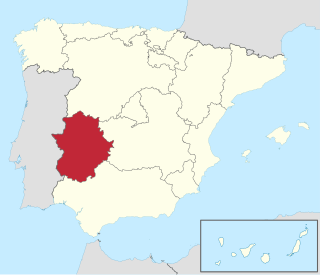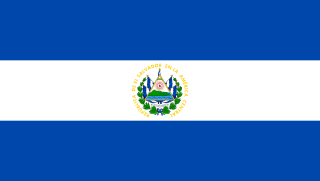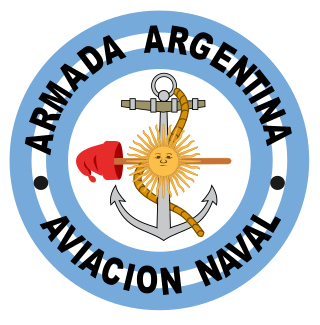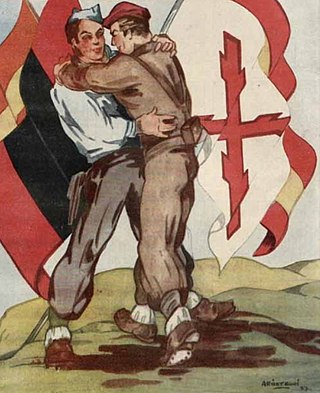Related Research Articles

The history of Spain dates to contact between the pre-Roman peoples of the Mediterranean coast of the Iberian Peninsula made with the Greeks and Phoenicians. During Classical Antiquity, the peninsula was the site of multiple successive colonizations of Greeks, Carthaginians, and Romans. Native peoples of the peninsula, such as the Tartessos people, intermingled with the colonizers to create a uniquely Iberian culture. The Romans referred to the entire peninsula as Hispania, from which the name "Spain" originates. As was the rest of the Western Roman Empire, Spain was subject to the numerous invasions of Germanic tribes during the 4th and 5th centuries AD, resulting in the end of Roman rule and the establishment of Germanic kingdoms, marking the beginning of the Middle Ages in Spain.

Melilla is an autonomous city of Spain on the North African coast. It lies on the eastern side of the Cape Three Forks, bordering Morocco and facing the Mediterranean Sea. It has an area of 12.3 km2 (4.7 sq mi). It was part of the Province of Málaga until 14 March 1995, when the Statute of Autonomy of Melilla was passed.

The Peruvian Armed Forces are the military services of Peru, comprising independent Army, Navy and Air Force components. Their primary mission is to safeguard the country's independence, sovereignty and territorial integrity against any threat. As a secondary mission they participate in economic and social development as well as in civil defense tasks.

The Armed Forces of the Argentine Republic are the combined armed forces of Argentina. It is controlled by the Commander-in-Chief and a civilian Minister of Defense. In addition to the Army, Navy and Air Force, there are two security forces, controlled by the Ministry of Security, which can be mobilized on occasion of an armed conflict: the National Gendarmerie, a gendarmerie used to guard borders and places of strategic importance; and the Naval Prefecture, a coast guard used to protect internal major rivers and maritime territory.

Extremadura is a landlocked autonomous community of Spain. Its capital city is Mérida, and its largest city is Badajoz. Located in the central-western part of the Iberian Peninsula, it is crossed from east to west by the Tagus and Guadiana rivers. The autonomous community is formed by the two largest provinces of Spain: Cáceres and Badajoz. Extremadura is bordered by Portugal to the west and by the autonomous communities of Castile and León (north), Castilla–La Mancha (east), and Andalusia (south).

Castilla–La Mancha is an autonomous community of Spain. Comprising the provinces of Albacete, Ciudad Real, Cuenca, Guadalajara and Toledo, it was created in 1982. The government headquarters are in Toledo, which is the capital de facto.

Santiago Antonio María de Liniers y Bremond, 1st Count of Buenos Aires, KOM, OM was a Spanish military officer and a viceroy of the Viceroyalty of the Río de la Plata. Although born Jacques de Liniers in France, he is more widely known by the Spanish form of his name.

The Revolutionary Government Junta was the name of three consecutive joint civilian-military dictatorships that ruled El Salvador between 15 October 1979 and 2 May 1982.

Cornelio Judas Tadeo de Saavedra y Rodríguez was an Argentine military officer and statesman. He was instrumental in the May Revolution, the first step of Argentina's independence from Spain, and became the first head of state of the autonomous country that would become Argentina when he was appointed president of the Primera Junta.

The Peruvian Army is the branch of the Peruvian Armed Forces tasked with safeguarding the independence, sovereignty and integrity of national territory on land through military force. Additional missions include assistance in safeguarding internal security, conducting disaster relief operations and participating in international peacekeeping operations. It celebrates the anniversary of the Battle of Ayacucho (1824) on December 9.

The Spanish American wars of independence occurred across the Spanish Empire in the early 19th century, ultimately leading to the political independence of continental Spanish America from metropolitan rule. Struggles for sovereignty in both hemispheres began shortly after the outbreak of the Peninsular War as a front in the larger Napoleonic Wars, between royalists, who favored a unitary monarchy and were defeated, and patriots, who favored either plural monarchies or republics and won. Thus, the strict period of military campaigns would go from the Battle of Chacaltaya (1809), in present-day Bolivia, to the Battle of Tampico (1829) in Mexico.

Spain remained neutral throughout World War I between 28 July 1914 and 11 November 1918, and despite domestic economic difficulties, it was considered "one of the most important neutral countries in Europe by 1915". Spain had maintained a non-aligned stance during the political difficulties of pre-war Europe, and continued its neutrality after the war until the Spanish Civil War began in 1936. While there was no direct military involvement in the war, German forces were interned in Spanish Guinea in late 1915.

The Argentine Naval Aviation is the naval aviation branch of the Argentine Navy and one of its four operational commands. Argentina, along with Brazil is one of two South American countries to have operated two aircraft carriers.

The Spanish Republican Army was the main branch of the Armed Forces of the Second Spanish Republic between 1931 and 1939.
The crisis of 1917 is the name that Spanish historians have given to the series of events that took place in the summer of 1917 in Spain. In particular, three simultaneous challenges threatened the government and the system of the Restoration: a military movement, a political movement and a social movement. These events coincided with a number of critical international events that same year. However, in world history this period is not typically referred to as a crisis, and the term is instead reserved for specific issues relating to World War I, such as the conscription crisis in Canada and the crisis of naval construction in the United States. Spain remained neutral throughout the conflict.
Events in the year 1917 in Spain.

The Unification Decree was a political measure adopted by Francisco Franco in his capacity of Head of State of Nationalist Spain on April 19, 1937. The decree merged two existing political groupings, the Falangists and the Carlists, into a new party - the Falange Española Tradicionalista y de las Juntas de Ofensiva Nacional Sindicalista. As all other parties were declared dissolved at the same time, the FET became the only legal party in Nationalist Spain. It was defined in the decree as a link between state and society and was intended to form the basis for an eventual totalitarian regime. The head of state – Franco himself – was proclaimed party leader, to be assisted by the Junta Política and Consejo Nacional. A set of decrees which followed shortly after appointed members to the new executive.

La Correspondencia Militar, also known as La Correspondencia, was a daily newspaper published in Madrid from 1877 to 1932. During its existence it maintained a hawkish editorial line favorable to the Spanish Army.
The history of the far-right in Spain dates back to at least the 1800s and refers to any manifestation of far-right politics in Spain. Individuals and organizations associated with the far-right in Spain often employ reactionary traditionalism, religious fundamentalism, corporate Catholicism, and fascism in their ideological practice. In the case of Spain, according to historian Pedro Carlos González Cuevas, the predominance of Catholicism played an essential role in the suppression of external political innovations such as Social Darwinism, positivism, and vitalism in Spanish far-right politics.

Felipe Alfau Mendoza was a Spanish military officer. He served as the first Spanish High Commissioner in Morocco and as Captain-General of Catalonia.
References
- ↑ Bernecker, Walther L. (2000). "Spain: The Double Breakdown". In Berg-Schlosser, Dirk; Mitchell, Jeremy (eds.). The Conditions of Democracy in Europe, 1919-39: The Systematic Case Studies. Macmillan Press Ltd. p. 408. ISBN 0-333-64828-5.
- ↑ La Porte, Pablo (2006). "Marruecos y la crisis de la Restauración, 1917-1923" (PDF). Ayer (64): 63. ISSN 1134-2277.
- ↑ Bernecker 2000, p. 408.
- ↑ Alonso Ibáñez, Ana I. (1999). "Las Juntas de Defensa de las clases de tropa (1917-1918)". Cuadernos de Historia Contemporánea (21). Ediciones Complutense: 259. ISSN 0214-400X.